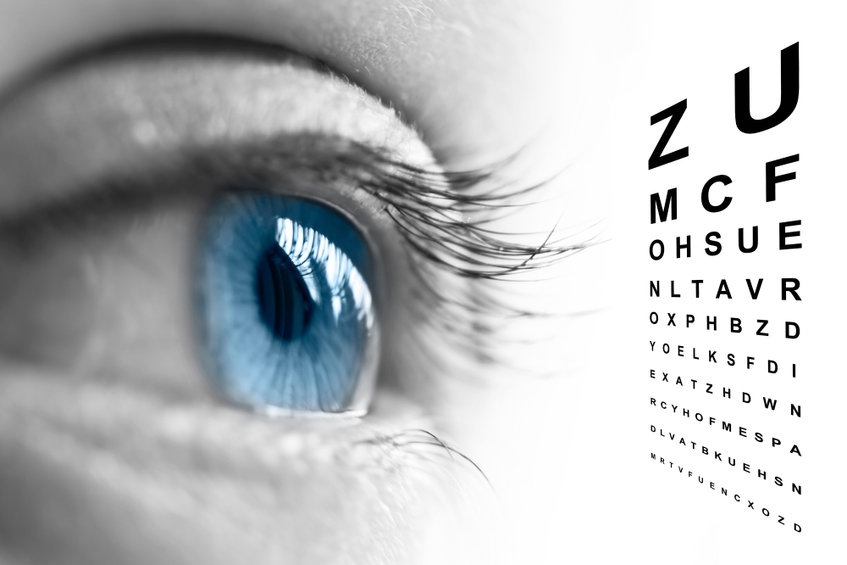The winter months can present a challenging set of circumstances when trying to maintain optimal eye health and comfort. Between the wind, cold, and snow, our eyes are subjected to particularly harsh conditions during these months. As with many aspects of our health, routine maintenance and care of the eyes is required for them to function optimally. The stressors placed on the surface of our eyes during this season only makes those habits more important.
The first, and likely most significant change affecting the eyes is temperature. As the temperature drops, and we begin heating our homes, the relative humidity decreases. Humidity is critical in maintaining moisture on the ocular surface. The drier the climate, the more the air will rob your eyes of their natural tears, causing dry eyes. Another way the cold air can negatively impact eye health is by inhibiting the release of oils from the eyelids. Oil glands run the entire margin of our eyelids, secreting oil as we blink. This oil helps stabilize the tear film as well as inhibits it from evaporating. Without this crucial layer of our tear film, the tear layer is unstable, which can lead to blurred vision and irritation.
Another factor affecting eye health is the wind. As mentioned above, without a proper tear layer, the eye will be prone to drying, especially in windy conditions. A common complaint during the winter months is watery eyes in the wind. What I often tell patients is that although counterintuitive, watery eyes are often a symptom of dry eye. The tears produced in certain situations, such as wind, dryness, and when something is in the eye, are different than the tears naturally produced throughout the day. When your eye senses significant dryness or a foreign object, a gland behind your eyebrow sends tears cascading down in an attempt to relubricate and/or flush out the eye. These tears are called “reflex tears” and are a sign the surface of the eye is struggling.
Finally, the snow presents a unique challenge in how it interacts with the sun. We all know that when the sun emerges after a snow storm it can feel blindingly bright outdoors. This is because snow is very good at reflecting UV light! In fact, there’s a well-known condition common among mountaineers that relates directly to this, “snow-blindness”. Looking down into bright snow for prolonged periods can be nearly as detrimental as staring into the sun. In the short term, intense eye pain and blurred vision can ensue. Longer term affects include the accelerating development of age-related eye conditions such as cataracts.
With these above phenomena, how are we to cope? In short, heat, lubrication, and sunglasses. As mentioned earlier, the oil glands are the most important modifiable aspect of the tear film. I recommend patients use a warm compress as needed to promote a healthy tear film. For some this would be a little as 10 minutes, once a day. Others may need more time to free the hardened oils from their eyelids. For information on warm compresses, see our blog on styes. Lubricating eye drops, specifically oil-based lubricating drops like Refresh Omega-3, are helpful in maintaining a healthy tear film. These tears can be used as often as one would like during the day as they are preservative free. Finally, sunglasses are critical. It’s easy to only associate sunglasses with the summer, but as described, UV light does not take a break in the winter! Keeping a quality pair of UV-blocking sunglasses with you in the winter, especially after it snows, is highly recommended. In dealing with drier air, some people also experience relief by using a humidifier in their home and/or workplace. This can certainly be helpful; just be sure to follow all instructions provided to maintain a hygienic system. Winter does not need to be associated with dry or irritated eyes! By following these guidelines, we can enjoy all winter has to offer, while seeing it clearly and comfortably. If you are suffering from irritated eyes and are unable to find relief, talk to your doctor. For more information, see our blog on dry eye and the links below.
References:
https://www.healthline.com/health/dry-eyes-in-winter#when-to-see-a-doctor
https://www.medicalnewstoday.com/articles/does-winter-cause-dry-eyes#summary












